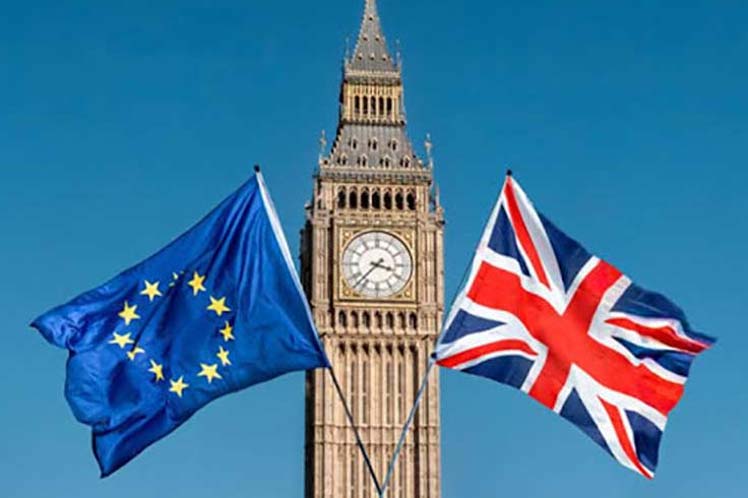London, England, December 6, 2020.- The United Kingdom and the European Union (EU) resume negotiations today in Brussels to try to reach a post-Brexit trade agreement before the transition period expires on December 31.
The British chief negotiator, David Frost, and his European counterpart, Michel Barnier, will meet this Sunday in that city, headquarters of the main bodies of the bloc, after the conversation the day before between Prime Minister Boris Johnson and the president of the Commission European, Úrsula von der Leyen.
During the telephone exchange, the two leaders admitted that there are still significant differences on the rules to avoid unfair competition, governance and fishing quotas, but agreed to resume negotiations and make one last effort to try to avoid a bad divorce.
The Environment Minister, George Eustice, reiterated this Sunday that the talks are going through a difficult time, although he assured that the British conservative government is ready to continue negotiating as long as it believes that an agreement is possible.
The United Kingdom left the European alliance on January 31 as part of the Brexit process, but London and Brussels were given 11 months to negotiate the terms of their future commercial relationship.
After nine rounds of bilateral talks, and with just three weeks until the so-called transition period expires, the negotiations are stalled due to disagreements over fishing quotas, the laws that would prevent unfair competition, and the way to implement the eventual pact. .
Eustice told Sky News on Sunday that London would be prepared to make some concessions on the issue of unfair competition, but stressed the British authorities’ argument that the EU should treat the UK as a sovereign state.
The minister considered, for example, “ridiculous” that the European alliance pretends to have access “in perpetuity” to the British fishing zones, instead of accepting a multi-annual agreement of up to three years.
If a free trade agreement is not signed before the end of the year, the United Kingdom and the EU will have to abide by the rules of the World Trade Organization, which entails the application of tariffs and customs controls for British goods that enter the European zone, with consequent increased costs and delays at ports of entry.
Source: Latin Press

— –


